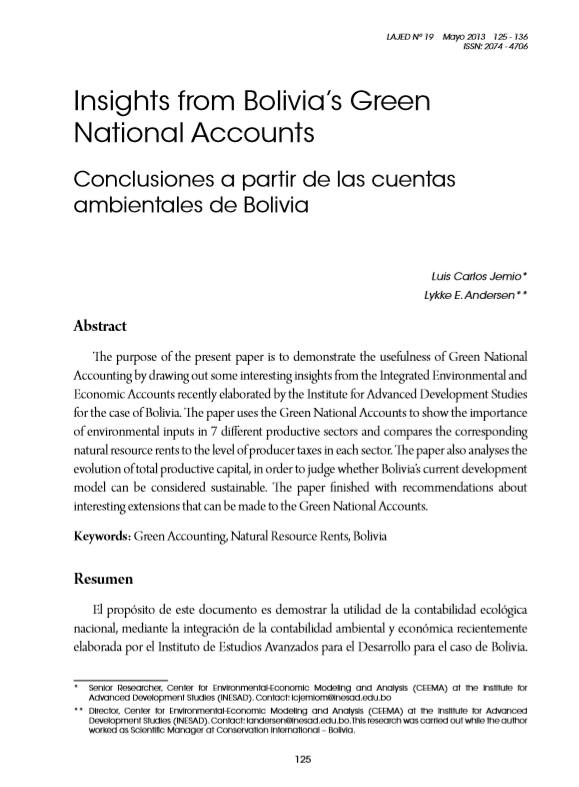Insights from Bolivia’s Green National Accounts
DOI:
https://doi.org/10.35319/lajed.201319111Keywords:
Green Accounting, Natural Resource Rents, BoliviaAbstract
The purpose of the present paper is to demonstrate the usefulness of Green National Accounting by drawing out some interesting insights from the Integrated Environmental and Economic Accounts recently elaborated by the Institute for Advanced Development Studies for the case of Bolivia. The paper uses the Green National Accounts to show the importance of environmental inputs in 7 different productive sectors and compares the corresponding natural resource rents to the level of producer taxes in each sector. The paper also analyses the evolution of total productive capital, in order to judge whether Bolivia’s current development model can be considered sustainable. The paper finished with recommendations about interesting extensions that can be made to the Green National Accounts.
Downloads
References
Bartelmus, P. (2008). Quantitative Eco-nomics: How sustainable are our economies? New York: Springer Science.
Christian, M. S. (2010). Human Capital Accounting in the United States, 1994–2006. Survey of Current Business, 90(6), 31-36.
Jemio, L. C. (2010). Cuentas ambientales: economía y medioambiente en Bolivia. La Paz, Bolivia: Plural Editores.
United Nations, Eurostat, IMF, OECD and the World Bank (2003). Handbook of National Accounting: Integrated Environmental and Economic Accounting 2003 (SEEA 2003).






